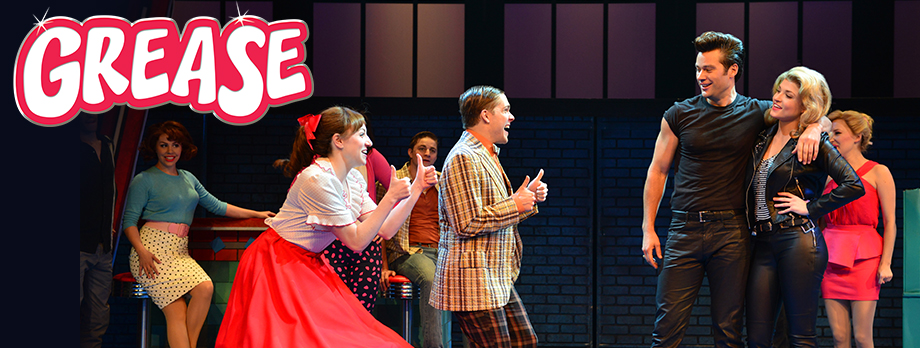about
At a cast party in 1970, actors Jim Jacobs and Warren Casey came up with the idea to write a show featuring the music of the 1950s, set in high school with characters based on people they went to school with. Together they wrote a play and original music, however Grease did not start out as a musical. In February of 1971 the pair mounted their first production of the show with a non-professional cast of 18 and a budget of only $171 at Kingston Mines Theater, an obscure venue in Chicago. The four night run played to sold out houses and was extended for many weeks following its initial premiere. During the initial run, two young theatre producers, Ken Waissman and Maxine Fox, saw the show and offered to produce it in New York providing Jacobs and Casey would agree to rewrite it as a musical with a full score. The pair quickly agreed, quit their day jobs and headed to New York where they worked daily on the rewrite. A year later the new musical Grease premiered off-Broadway at the downtown Eden Theater. It earned seven Tony Award nominations, including Best Musical of the Year and then moved to Broadway to play at the Broadhurst Theater and eventually the Royale. At 3,388 performances it set a record as the longest-running show on Broadway until 1980, when A Chorus Line took that title.
The first National Tour of Grease followed the New York debut and took the U.S. and Canada by storm. In the cast was a young newcomer named John Travolta playing Doody, the nerdy kid who idolizes Danny Zuko. In 1973, the show opened in London’s West End with the then unknown American actor Richard Gere as Danny Zuko. In 1978, Grease was made into a major motion picture starring John Travolta, by then a rising television star, in the lead role along with Olivia Newton-John as Sandy. The film catapulted Travolta to major motion picture stardom and it remains the highest grossing movie musical of all time. Grease has enjoyed many revivals since its initial success and continues to be a favorite show for theatres and audiences around the world.
Grease takes place in a fictional high school during the late 1950s, a time that ushered in a new phenomenon that resulted from the post-World War II economic boom – the teenager. This new era allowed teen-aged children the freedom of leisure time, independence and cash to spend. For the first time in history teens displayed their rebellion against the adult world’s conservative dress and behavioral codes by experimenting with cigarettes, alcohol and sex, by wearing leather jackets and tight pants and by slicking back their longer hair. Rebellious youth culture was on the rise in the form of the “Greasers,” the young men in working class neighborhoods who affected an image of “cool,” a poised, disinterested disdain. The root cause of all this “decadent” behavior was attributed to a new form of music called “rock n’ roll.”
In 1958 there was no way to know where the seeds of social revolution would lead or just how profoundly the world was about to change. During the 1970s, in the aftermath of the turbulent cultural-revolution and the Vietnam War, the 1950s were looked back upon as an innocuous and innocent time and often idealized as a happy decade. Perhaps this accounts for the revival of 1950s pop culture in the 1970s. In addition to Grease, there were films such as American Graffiti and The Lords of Flatbush and the television show "Happy Days," all celebrating, with varying degrees of seriousness, the first glimpses of an authentic youth culture in America. The persistent charm and joy of Grease lies in the fact that it restores us, for a short while, to a state of blissful ignorance.
The Ogunquit Playhouse has taken a fresh look at this popular classic and is melding favorite elements of both the film and the Broadway musical to create a unique production of the rock n’ roll show. DJ Salisbury has returned to the Ogunquit Playhouse as the Director/Choreographer, (2012 and 2013 D/C for Buddy, the Buddy Holly Story) and he has delivered a thrilling injection of pure fun, along with astounding dancing to match the iconic songs.




